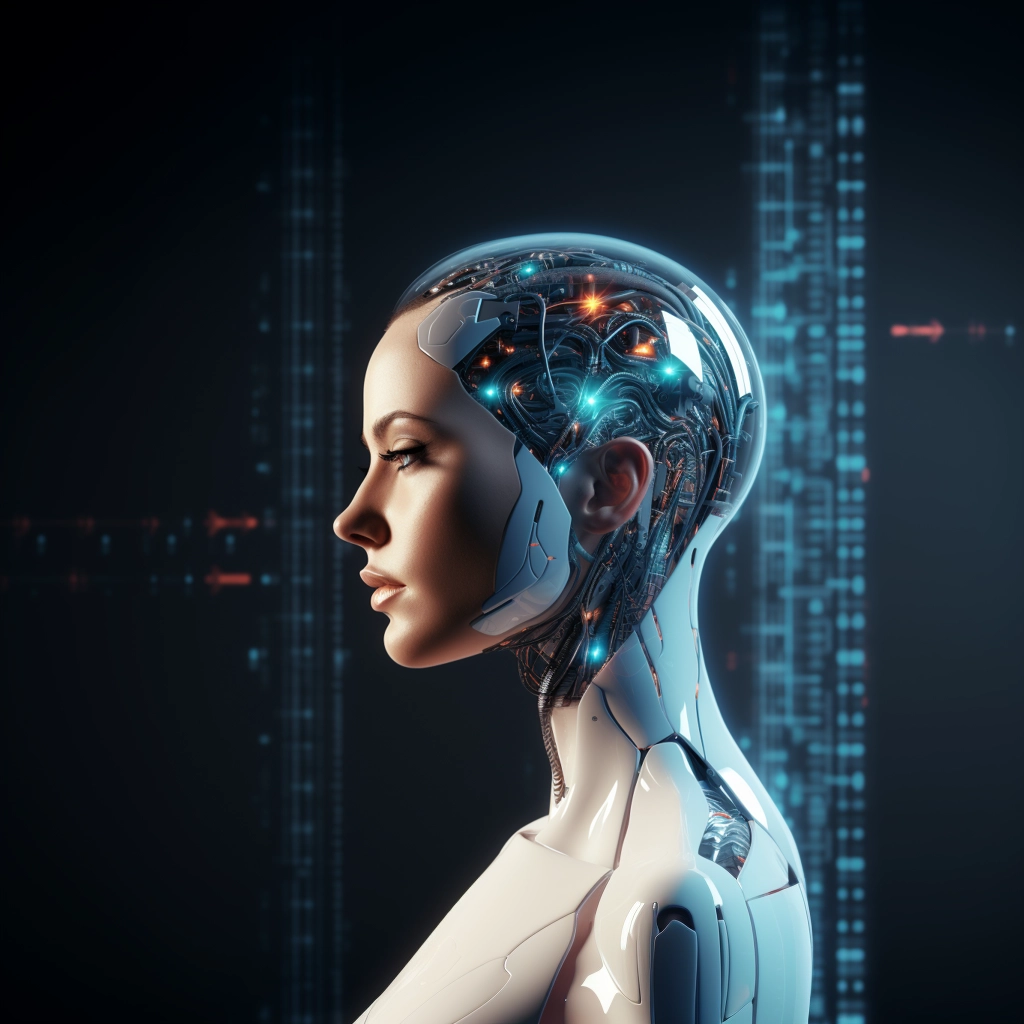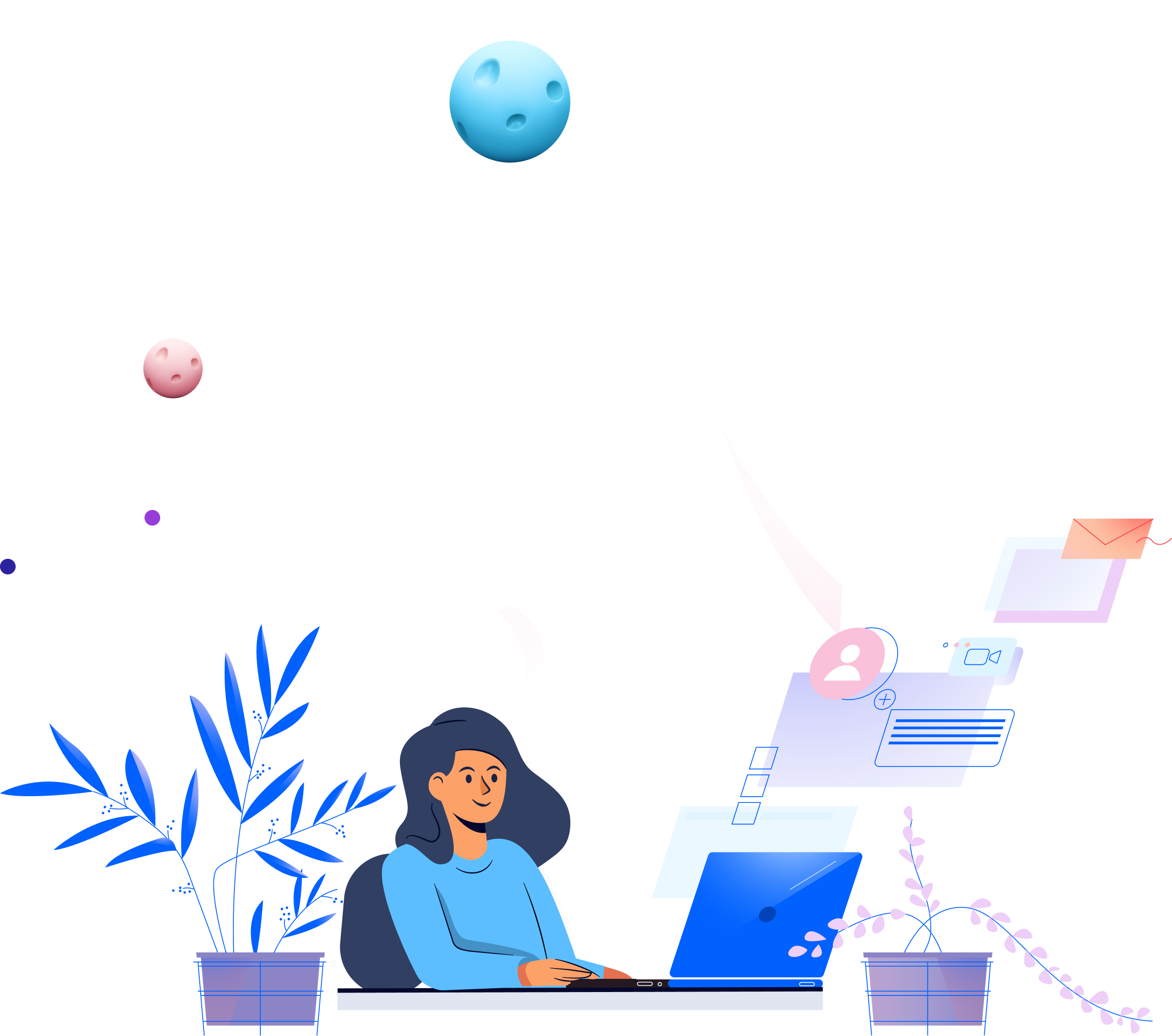Embracing Artificial Intelligence: Navigating the Future of Work and Skill Development
AI has become a buzzword in recent years, captivating the attention of individuals and industries alike. But what exactly is AI and how it will continue impact our future of work? And how students can achieve AI Skills through E-learning?
Simply put, AI develops computer systems that mimic human intelligence. These systems can perform tasks like speech recognition and decision-making. They also excel in problem-solving and learning. AI can revolutionize sectors, including healthcare and finance. Its impact on future work is significant.
AI is rapidly evolving, altering the job market. Some fear AI will replace human jobs. Others see it creating new roles and transforming existing ones. The reality is a mix of both. AI may automate some jobs. Yet, it’s expected to generate new roles needing human and AI skills. Thus, developing AI skills is crucial to stay competitive in the job market.
The journey of Achieving AI skills through E-learning can be rewarding, but if you’re starting from scratch, consider these three steps to gain a solid understanding:
Understand the Basics and Fundamentals.
- Start by familiarizing yourself with fundamental AI concepts. Learn how AI differs from machine learning, deep learning, and deep learning. Get to know terms such as neural networks, supervised versus unsupervised learning, and reinforcement learning.
- If you are into books, it is worthwhile reading Superintelligence by Nick Bostrom.
Dive into basic mathematics.
- There are several mathematical foundations to AI, such as linear algebra, probability, and statistics, as well as calculus, depending on the depth of your study. You should start by learning linear algebra, probability, and statistics.
- Various tutorials can be found on Khan Academy, Udemy, Coursera, and edX, but if you are looking for a more AI-specific approach, then you might want to consider “Mathematics for Machine Learning” by Marc Peter Deisenroth, A Aldo Faisal, and Cheng Soon Ong.
Hands-on programming and practice.
By the time you’ve completed these initial steps, you’ll be better prepared to delve into more specialized areas of AI, join advanced courses, or approach complex projects.
Is AI going to replace humans or enhance their productivity?
AI will affect the workforce, in both a positive and a negative way. Here’s how it’s likely to play out.
- AI Replacing Human Jobs:
- Repetitive Tasks: AI excels at routine, repetitive tasks. Automation poses a greater risk to jobs that involve such tasks, such as customer service or data entry.
- Complex Calculations: For faster and more accurate results, certain financial analyses can be automated to process vast amounts of data.
- Physical Jobs in Controlled Environments: Warehouse packing or item sorting can be handled by robots with AI capabilities.
- AI Enhancing Human Productivity:
- Assistive Role: In many professions, AI acts as an assistant rather than a replacement. Doctors, for example, use AI to improve diagnostics, but the human touch, judgment, and experience remain essential.
- Handling Large Data: Artificial Intelligence (AI) can help professionals sort, comprehend, and be able to derive insights from large data sets, thereby improving the decision-making process.
- Creativity & Innovation: While AI can assist in creative processes, the uniquely human traits of intuition, cultural context, and emotional intelligence drive true innovation. AI can provide tools that help artists, designers, and other creatives expand their capabilities.
- Reducing Errors: Artificial intelligence (AI) has the potential to monitor and check human work for potential errors, ensuring higher quality outcomes in fields such as medicine and engineering in the future.
- Other Considerations:
- Job Transformation: Some jobs may not disappear but instead transform. Workers might need to adjust and learn how to work with AI tools within their jobs, since tasks in their job might change.
- New Job Creation: There has been a history of technological advancements creating new careers and making others obsolete, which has led to the creation of new jobs. The use of artificial intelligence is likely to lead to roles that we have not yet imagined.
AI will replace certain tasks and, in some cases, whole jobs, but it’ll also improve efficiency and productivity in many professions. The key is adaptability, lifelong learning, and blending AI’s computational strengths with human creativity, judgment, and empathy.
How can one get AI skills?
Achieving AI skills through E-learning is the most trendy way on our days.
Nowadays, everyone can take an AI class from the comfort of their home, and achieve AI Skills through E-learning, because online education platforms are all around. These courses cover everything from machine learning to neural networks to basic AI knowledge. With AI e-learning programs, you’ll be able to stay on top of your career, they’ll give you a full understanding of AI and its applications, so you’re able to stay ahead in your career.
Many universities and online platforms offer AI courses that cater to different skill levels and interests, so you’ll find plenty of options when it comes to finding AI courses. There are a lot of AI courses on platforms like Coursera, Udemy, and EdX that offer video lectures, quizzes, and hands-on projects. Moreover, there are AI boot camps and workshops that offer intensive training programs for AI beginners.

Our recommended online course for an AI online course to start with:
Achieving AI Skills through E-learning will be great to start with “Introduction to Artificial Intelligence” course offered by Stanford University on Coursera.
In conclusion, AI is a rapidly evolving field that has the potential to shape the future of work. To stay competitive in this changing landscape, individuals must invest in increasing their AI skills. E-learning platforms provide a convenient and accessible way to learn about AI, with a plethora of courses available to suit different needs. By taking advantage of these resources, individuals can equip themselves with the necessary knowledge and skills to thrive in the age of AI.
So why wait? Start exploring AI courses today and unlock a world of opportunities.












